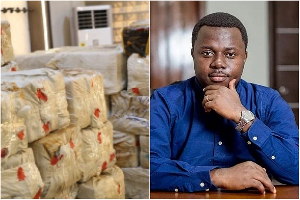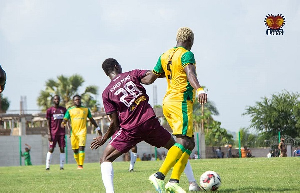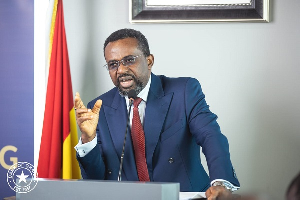The progress of Ghana depends on the collective mindset, attitude, and behaviour of her people, spanning both the younger and older generations. For the nation to achieve sustainable development, its citizens must embrace values such as discipline, patriotism, and a commitment to excellence. These qualities shape not only personal growth but also the collective progress of society. Attitudes rooted in entitlement, corruption, nepotism, favouritism, indiscipline, and apathy must give way to a culture of accountability, industriousness, and forward-thinking.
The dawn of a new beginning and new government presents a unique opportunity to address these issues and reset the mindset of the populace. Young people, as future leaders, need to be guided towards leadership, responsibility, and self-discipline, while older generations must embody values that inspire and set a positive example. The task is to instil patriotism and foster a collective determination to prioritize Ghana’s development above individual or partisan interests.
Achieving this transformation requires deliberate steps to improve education, leadership training, civic responsibility, and community engagement. By aligning the attitudes and actions of all Ghanaians with progressive ideals, the country can build a disciplined, united, and forward-looking society. The following measures outline how such a shift can be achieved.
Military training for National Service Personnel
National Service plays a pivotal role in the transition of young graduates into the professional world. Introducing a component of military training into the National Service programme will instill discipline, resilience, and a strong work ethic. This training should not only focus on physical fitness but also emphasize teamwork, time management, and patriotism, ensuring that young professionals approach the workplace with a sense of purpose and national pride.
Leadership training for Senior High School (SHS) leavers
Leadership qualities are best cultivated at a young age. A structured leadership training programme for SHS graduates before they transition into tertiary education can equip them with skills in communication, problem-solving, and decision-making. This initiative will instill discipline, foster a sense of responsibility, and nurture a readiness to take academic work seriously. Moreover, this training can serve as a bridge between adolescence and adulthood, empowering students to lead themselves and others effectively.
Value-based education and mentorship programmes
Reforming the educational system to prioritize value-based education is crucial. Beyond academic achievements, students must learn values such as integrity, respect, accountability, and empathy. Establishing mentorship programmes which have already been run in some tertiary institutions in Ghana but need scalability where experienced professionals from both academia and industry guide the youth can bridge the gap between theory and practical application, providing insights into ethical and effective leadership.
4. Community Engagement and Volunteering Programmes
Creating opportunities for the youth to engage in community service can foster a sense of social responsibility. For example, youth could join sanitation initiatives such as volunteering with groups like Zoomlion to clean public spaces, manage waste, and promote environmental awareness. Offering a small token of appreciation at the end of each day’s work can serve as a motivation while reinforcing the importance of their contribution to society.
Such programmes address pressing issues like environmental conservation and also instil a spirit of selflessness and collaboration among participants. By actively engaging in sanitation and public health projects, the youth develop a deeper understanding of community challenges and the role they can play in solving them. This approach nurtures a culture of responsibility and pride in contributing to the betterment of society, paving the way for a cleaner, healthier, and more sustainable Ghana.
Nationwide public awareness campaigns
To reset the mindset of the broader population, it is essential to launch nationwide campaigns that emphasize civic responsibility, environmental consciousness, and adherence to the rule of law. These campaigns should leverage the resources of the information departments of Metropolitan, Municipal, and District Assemblies (MMDAs), the National Commission for Civic Education (NCCE), as well as institutions of national pride such as Parliament, the Ministries, the Jubilee House, and the Presidency.
These esteemed institutions, representing the ideals of Ghana, must lead by example, demonstrating accountability, sacrifice, and commitment to national progress.
Religious bodies like Churches and Mosques, alongside media platforms and community outreach initiatives, can also play a vital role in spreading these messages to every corner of the nation. The older generation, especially those in leadership, must set the tone through acts of sacrifice and service, inspiring the younger generation to adopt similar values. Whether it involves volunteering for sanitation campaigns, supporting national cleanup efforts, or adhering to environmental laws, these examples will serve as a blueprint for fostering collective responsibility.
By engaging both the young and old, these campaigns can drive home the importance of accountability, discipline, and collaboration in building a prosperous and sustainable Ghana, where every citizen takes pride in contributing to its progress.
Revamping Civic Education
Reintroducing and prioritizing civic education at all levels of the educational system is critical. Understanding the roles, rights, and responsibilities of citizens will empower Ghanaians to actively participate in governance and national development.
Promoting entrepreneurial thinking
Equipping both the youth and the older population with entrepreneurial skills can help reduce dependence on government employment. Training programmes in innovation, resource management, and financial literacy can create a workforce that is proactive, self-reliant, and capable of contributing to Ghana's economic growth.
Encouraging intergenerational dialogue
There is a wealth of wisdom in the older generation that can guide the youth. Structured platforms for intergenerational dialogue can bridge the gap between experience and innovation, fostering mutual respect and a shared vision for national development.
Strengthening law enforcement and accountability
A disciplined society thrives on the enforcement of laws and the accountability of its citizens. Rebuilding trust in law enforcement institutions through transparency and fairness will encourage adherence to societal norms and discourage corruption and indiscipline.
Conclusion
Resetting the mindset of Ghanaians requires a multi-faceted approach that prioritizes reforms in education, community engagement, leadership training, and extracurricular activities. By instilling discipline, promoting values-based learning, and fostering a sense of responsibility, the nation can lay a strong foundation for sustainable growth and development. School sports and games, cultural festivals, debates, scholarship essay-writing competitions, and other extracurricular activities must be revitalized and integrated into the educational system. These activities are crucial for nurturing teamwork, critical thinking, creativity, and cultural appreciation among students.
They also serve as platforms for fostering healthy competition, national pride, and leadership skills, ensuring that students grow into well-rounded individuals capable of contributing to society. This transformative agenda calls for a collective effort from all sectors. Government institutions must provide the necessary policies and resources, schools should create an environment that nurtures talent and discipline, communities must support these initiatives through active participation, and individuals must commit to self-improvement and the collective good.
By working together to reform these vital areas, Ghana can cultivate a generation of forward-thinking, responsible citizens ready to propel the nation toward progress and prosperity. It is possible now.
Watch a compilation of the latest Twi news below:
Watch the latest video on Trending GH below:
Opinions of Wednesday, 18 December 2024
Columnist: Robert Kwame Senu















